Costa Rica Language – Spanish Travel Phrases
Disclaimer: This article may contain affiliate links. Clicking on them may earn Costa Rica Vibes a commission, at no extra cost to you. Thank you for your support!
The national Costa Rica language is Spanish. This means that it is really helpful to know at least some basic Costa Rican Spanish before visiting.
If you are in touristy locations you will likely have no trouble finding someone who speaks perfect English, but it is good to know some Spanish phrases for things like going to non-touristy restaurants, filling up gas in your rental car, etc.
Anyway, here is a complete guide to basic Spanish for Costa Rica to help you get by during your travels.
Basic Spanish Words / Phrases
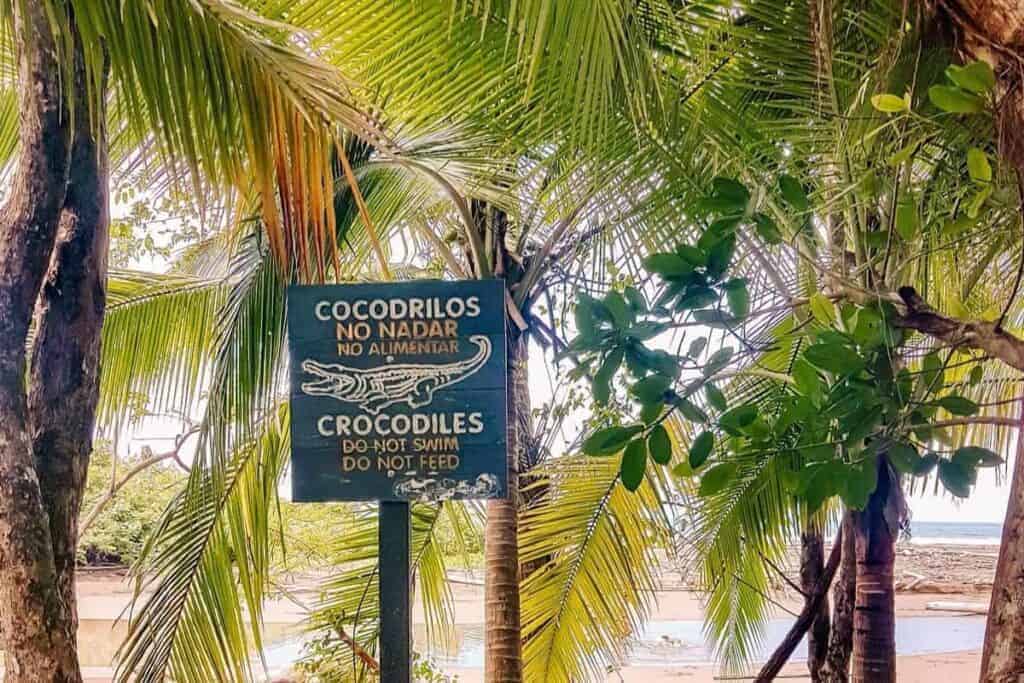
Here are some of the words and phrases you are most likely to use in Spanish.
Yes – Si
No – No
Maybe – Tal vez
Of course – Claro
Fine – Bien
I need… – Necesito…
Formalities in Spanish
Please – Por favor
Thank you – Gracias
Thank you very much – Muchas gracias
You’re welcome – De nada / Mucho gusto
Excuse me – Con permiso (used if you need to get by somebody)
Excuse me – Discúlpe (when you need to get somebody’s attention)
Pardon me – You can say “disculpe” or “perdón!” (use if you bang into somebody)
I’m sorry – Lo siento
Language Phrases
Do you speak English? – Habla inglés?
I don’t speak Spanish – No hablo español
I speak a little Spanish – Yo hablo un poco de español
How do you say … in Spanish? – (Como se dice … en español?
What does … mean in English? – Que significa … en ingles
Do you understand? – ¿Entiende?
I don’t understand – No entiendo
Speak slower please – Por favor, habla más despacio
Can you repeat please – Podrías repetir por favor
Greetings and Goodbyes in Spanish
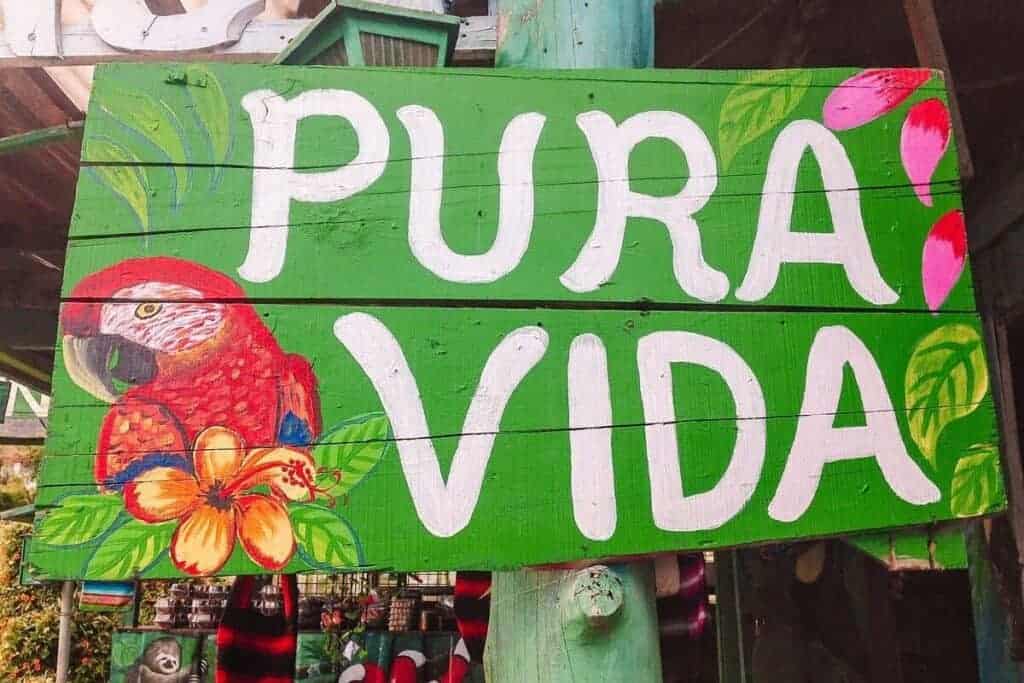
Hello – Hola
Hi – Buenas (The direct translation is “good” but in Costa Rica “buenas” is a more relaxed way of saying hello. It is normal to say “Buenas” to people working at a shop, restaurant etc. )
Good morning – Buenos días
Good afternoon – Buenas tardes
Good evening/ night – Buenas noches
How are you? – Cómo estás?
What is your name? – Cómo se llama?
My name is… – Mi nombre es…
Nice to meet you – Mucho gusto
Where are you from? – De dónde eres?
I am from … – Yo soy de …
See you later – Hasta luego
Bye – Adiós
Bye – ¡Pura Vida!
Bye – Ciao
Question Phrases
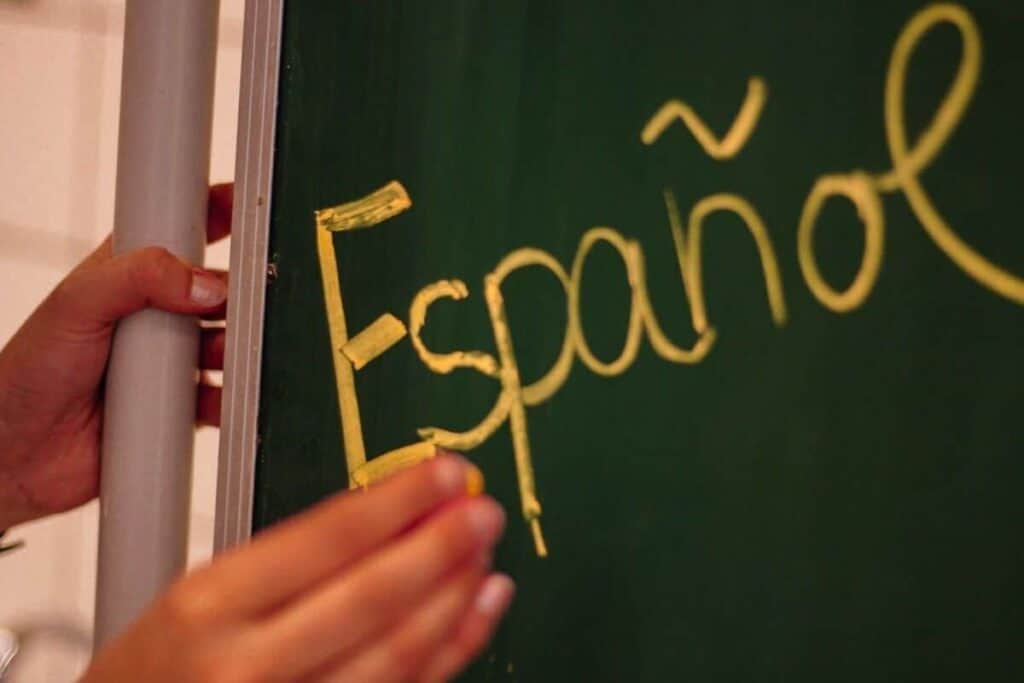
Can I…? – ¿Puedo…?
Can you…? – ¿Puede…?
Do you have…? – ¿Tiene…?
What? – ¿Que?
What time is it? – Qué hora es?
When? – ¿Cuándo?
How? – ¿Cómo?
Why? – ¿Por qué?
Where? – ¿Dónde?
Where is…? – ¿Dónde está…?
Emergency Phrases
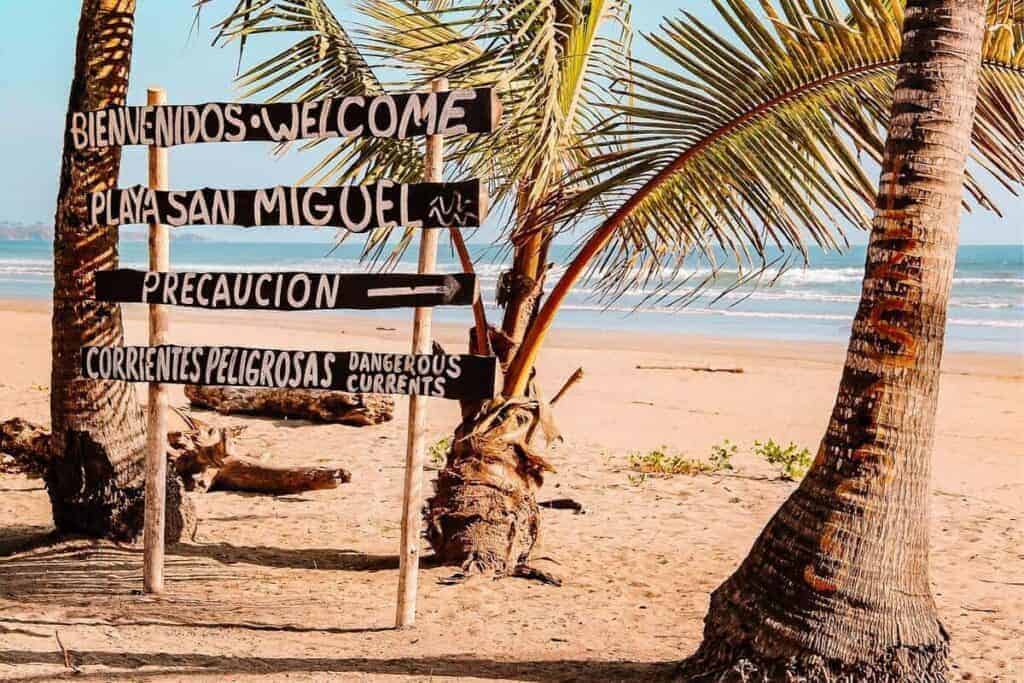
In case of an emergency, the number for the police is 9-1-1. Usually it is no problem to speak to someone that knows at least some English.
Also, keep in mind that there are no addresses in Costa Rica. You will either have to explain to the police where you are located or tell them the name of the hotel/ place you are at.
Help! – Auxilio!
I need help – Necesito ayuda
I had an accident – Tuve un accidente
Send the police, please- Envíe a la policía, por favor.
I’ve been robbed – Me han robado (a)
My passport was stolen – Me robaron el pasaporte
I lost my passport – Perdí mi pasaporte
I am sick – Estoy enfermo (a)
I don’t feel well – No me siento bien
I need a doctor – Necesito un médico
heatstroke – insolación
heart attack – ataque al corazón
Restaurant Phrases for Costa Rica
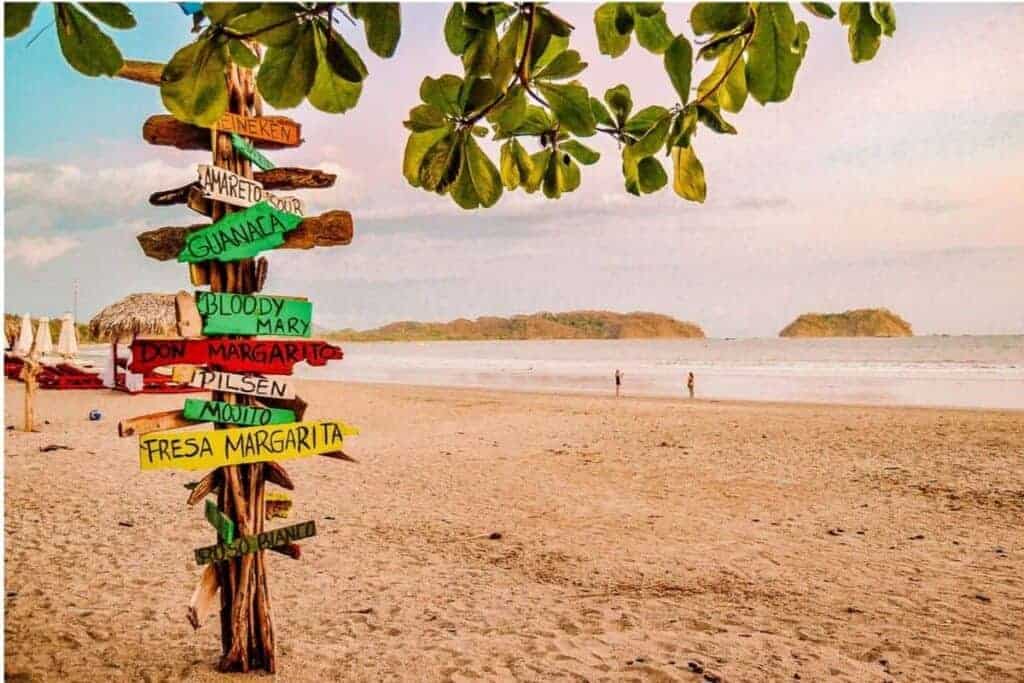
In most restaurants, you will be able to get an English menu. If they give you a menu in Spanish it is always worth at least asking if they have one in English as well.
When you finish your meal you will need to ask for the bill. They will not just come over and give it to you.
Also, on your bill, you will see a sales tax and a service tax. Service tax is usually 10%. It is always nice to give a bit of a tip on top of this, but it is not absolutely necessary.
I have a reservation – Tengo una reservación
A table – Una mesa
A table for two, three, four – Una mesa para dos, tres, cuatro
The menu please? – ¿El menú, por favor?
Do you have an English menu? – ¿Tiene un menu en ingles?
I would like…. – Para mi (menu item name), por favor. Or you can say…. Yo quisiera (menu item name)
I am allergic to … – Soy alérgico a …
An appetizer – Una entrada
What would you like to drink? – ¿Para tomar?
A drink – Una bebida
Cheers! – ¡Salud! –
Dessert – Un postre
I am vegetarian – Soy vegetariano/a
Very tasty – Que rico!
To go – Para llevar
The bill, please – La cuenta, por favor.
Service – Servicio (This is the 10% added to the bill for tip)
Sales tax (13%) – Impuestos ventas
Transportation Phrases for Costa Rica

There are some phrases that will be very helpful while getting around the country with ease.
Gas Station Spanish

All gas stations in Costa Rica are full service. That means you just stay in your car while a gas station attendant takes care of everything for you. If you need your windshield washed or tire pressure checked they can do that as well. However, it is always nice to give them a small tip (we usually give about 300 colones) if they provide these extra services for us.
Fill it with regular (gas) please – Lleno con regular, por favor
Could you please check the air pressure? – ¿Podría por favor verificar la presión de aire en las llantas??
Could you clean the windshield? – ¿Podría limpiar el parabrisas?
May I have the bathroom key? – Me podría dar las llaves del baño, por favor?
Taking the Bus

Often you will buy bus tickets ahead of time at a bus station ticketing office. However, if you are boarding a bus at a bus stop you will need to purchase your ticket on board. Most bus drivers do not speak English so it is good to know a few basic phrases for your bus ride.
Bus station – Estación de buses
Bus stop – Parada de bus
Where are you going? – ¿A dónde va?
Do I need a ticket? – ¿Necesito un tiquete?
One ticket to…. – Un tiquete a
Stop here – Pare aquí
Direction Phrases
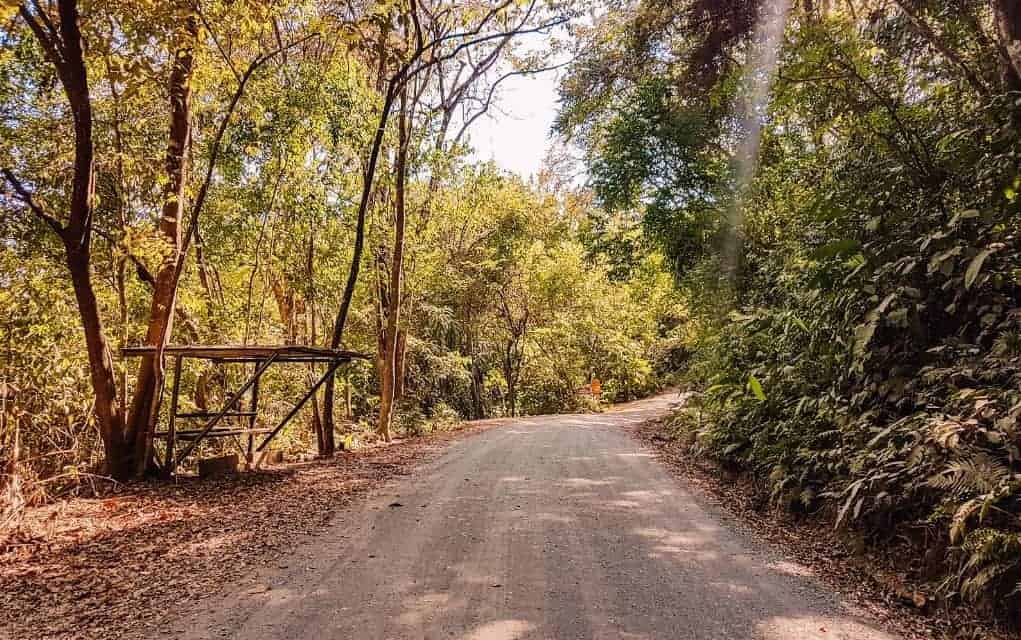
Because people from Costa Rica are generally nice people-pleasers it can be difficult to get directions from them. It is not unusual for Ticos to try and give you directions even if they have no idea where you need to go.
So, the moral of the story is that you will need to asses the situation and decide if you really trust somebody’s directions.
If you would like some tips on driving directions we have a complete guide to getting directions in Costa Rica.
Can you help me? – ¿Puede ayudarme?
How do I get to …? – ¿Como llego a…?
Where is the nearest gas station? – ¿Dónde está la gasolinera más cercana
I am lost – Estoy perdido
I am going to… – Voy a…
Is this the road to…? – ¿Esta es la calle a…?
To the right – A la derecha
To the left – A la izquierda
Straight ahead – Derecho
At the corner – En la esquina
In one block – A una cuadra
Shopping Phrases for Costa Rica
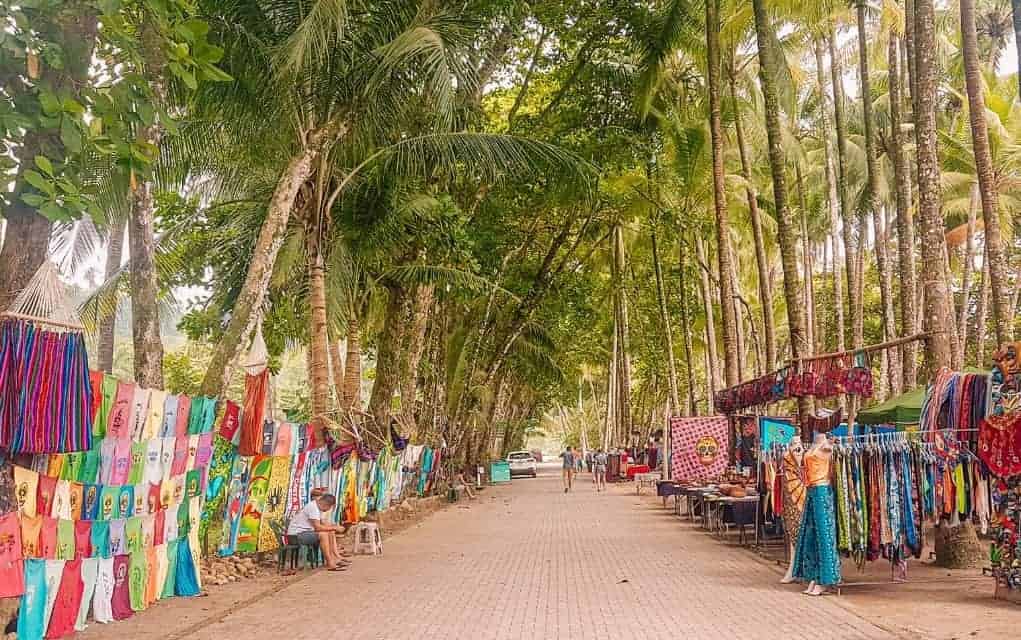
At outdoor art stands it is OK to haggle a bit for the price. However, keep in mind that Costa Ricans do not like confrontation. Don’t make them feel uncomfortable by trying to get a much lower price for something.
Open – Abierto (as in relation to store hours)
Closed – Cerrada (as in relation to store hours)
I’m just looking – Solo estoy mirando
I’m looking for … – Estoy buscando …
What sizes do you have? – ¿Que tallas tienes?
Small – Pequeño (a)
Medium – mediano (a)
Large – Grande
Can I try it on? – ¿Me lo puedo probar?
Do you have other colors? – ¿Tienes otro colores?
Do you sell Kolbi cards? – ¿Vendes tarjetas Kölbi prepago?
I would like a card for (amount) – Me vendes una tarjeta por (amount) colones
(Note: Kolbi is one of the prepaid phone companies here. You can pick up a SIM card in the airport after exiting Customs. Check out our guide to using your cell phone in Costa Rica for more info on how that works)
Phrases for Paying
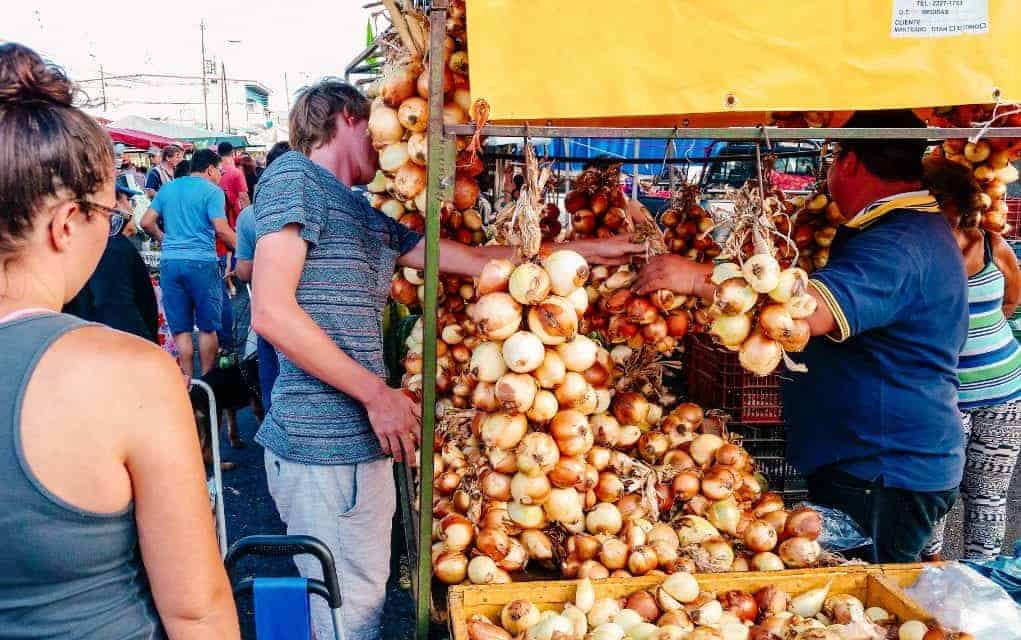
I would like to buy this – Lo voy a comprar
How much does it cost? – ¿Cuánto cuesta?
Do you accept dollars? – ¿Aceptan dólares?
Do you accept credit cards? – ¿Acepta tarjetas de crédito?
Hotel Phrases for Costa Rica
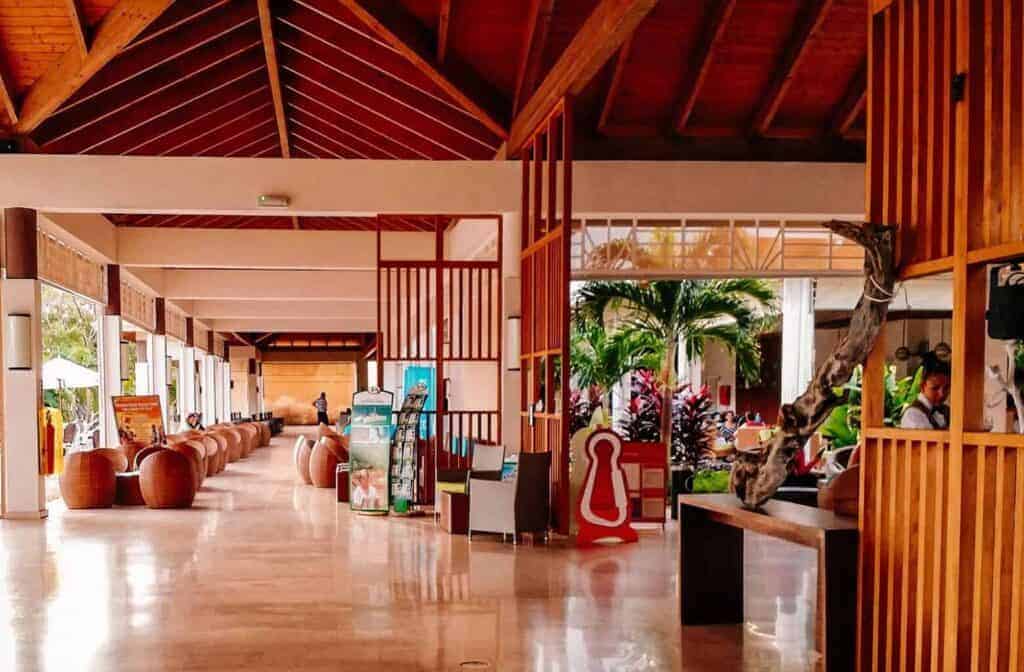
In most hotels, the front desk person will speak some English. If you run into a situation in which there is not an English speaking employee these are the phrases you need to know.
I have a reservation – Tengo una reservación
What is the nightly rate? – ¿Cuánto es la tarifa por noche?
Do you have any rooms available? – ¿Tiene habitaciones disponibles?
I’d like a double room – Quisiera una habitación doble
I’d like to stay for … nights – Me gustaría quedarme por … noches
Is breakfast included? – ¿El desayuno está incluido?
What time is check out? – ¿A qué hora es la salida?
What is the WIFI password? – ¿Cuál es la clave para el WIFI?
Our Costa Rica Language Tips
– People from Costa Rica are generally some of the nicest people you will ever meet. Don’t be shy about trying to speak Spanish here.
Almost everybody you meet will be so appreciative that you at least are making the effort. Also, they will likely recognize right away that you are not from here and will speak slowly to you or they may even switch to English.
-The Google Translate app is always great to have on your phone. It is super-advanced now and even has a feature in which you can speak into the app in English and it will translate it by voice into Spanish. This is perfect for when you need a lot of help with something and have no clue how to say what you need.
-We created this in PDF format that you can download for free. We know you won’t always have our website open. This will make it so you can easily access this list whenever you need. 🙂 Just click here to grab your copy.
Hopefully, this guide to Costa Rica language has helped you get a better grasp on some basic Spanish for your vacation. Let us know if you have any questions about speaking Spanish in the comment section below. While we are not Spanish experts we are happy to try and help you out.
You Might Also Like:
Costa Rica Travel Details: What You Need to Know
🚗 Should I rent a car in Costa Rica?
Having a rental car will give you the most flexibility when traveling in Costa Rica. This will also allow you to take fun day trips on your own.
- Save 10% Plus Other Perks with Our Adobe Rental Car Discount
- You might also consider; shared shuttle services or private transfer services
🏄🏽 How can I book things to do?
We find that Viator tends to have the most comprehensive selection of activities with secure booking and good cancellation policies.
🍍 I’m overwhelmed with planning. Can you help?
Of course! I suggest joining our Facebook group for specific questions and head to our Start Here Page to get started planning.
✈️ What is the best way to book a flight?
Usually, we have the best luck finding great prices with Skyscanner. Check for flights to both San Jose Airport (SJO) and Liberia Airport (LIR).
🛏️ What is the best way to book my Costa Rica hotels?
We highly suggest Booking.com for hotel bookings and typically use VRBO for Costa Rica vacation rentals.
🗣️What is the main language in Costa Rica?
The main language in Costa Rica is Spanish. Most people working in tourism speak at least some English.
💰 What is the currency in Costa Rica?
The currency used in Costa Rica is the Costa Rican colón (CRC). However, the US dollar is widely accepted in most tourist areas
📞 What is the best way to stay connected?
An eSIM from Airalo is the easiest way to get 4G data while traveling in Costa Rica.
🌴 Is Costa Rica safe?
Generally, Costa Rica is considered safe for tourists. However, like any travel destination, it’s best to use caution and be aware of your surroundings.
🛂 Do you need a passport to go to Costa Rica?
Yes, Costa Rica is its own country. You will need a passport to visit.

Hi! We’re Thomas (the German) and Sarah (the US-er)
We met in Virginia, moved to Germany, and since 2016 we have lived in sunny Costa Rica.
It was a spontaneous decision to move here, but it was the best decision!
Now we spend our days roaming the country to bring you the very best in Costa Rica travel here on Costa Rica Vibes.
Sarah is the writer. Thomas is the one keeping it all together.
Want the whole crazy story?

Sarah McArthur
Sarah McArthur is the co-founder and main writer of Costa Rica Vibes.
She is originally from the United States but has lived in sunny San Jose, Costa Rica since 2016.
She has traveled all over the country and now considers herself a self-proclaimed Costa Rica travel expert.
Want the whole crazy story?















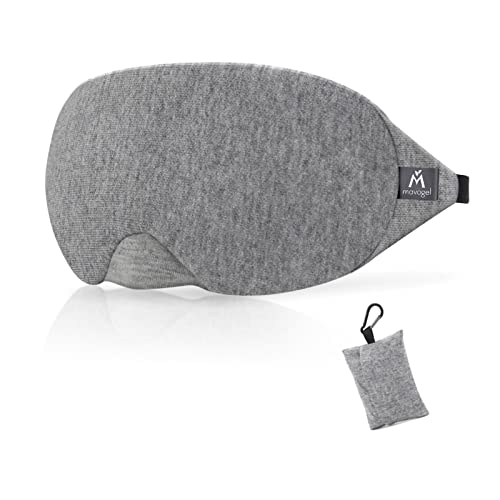





Great post, this will be very helpful for travelers.
Two slang terms I hear a lot are “tuanis” which is like cool and “mae” which is like bro.